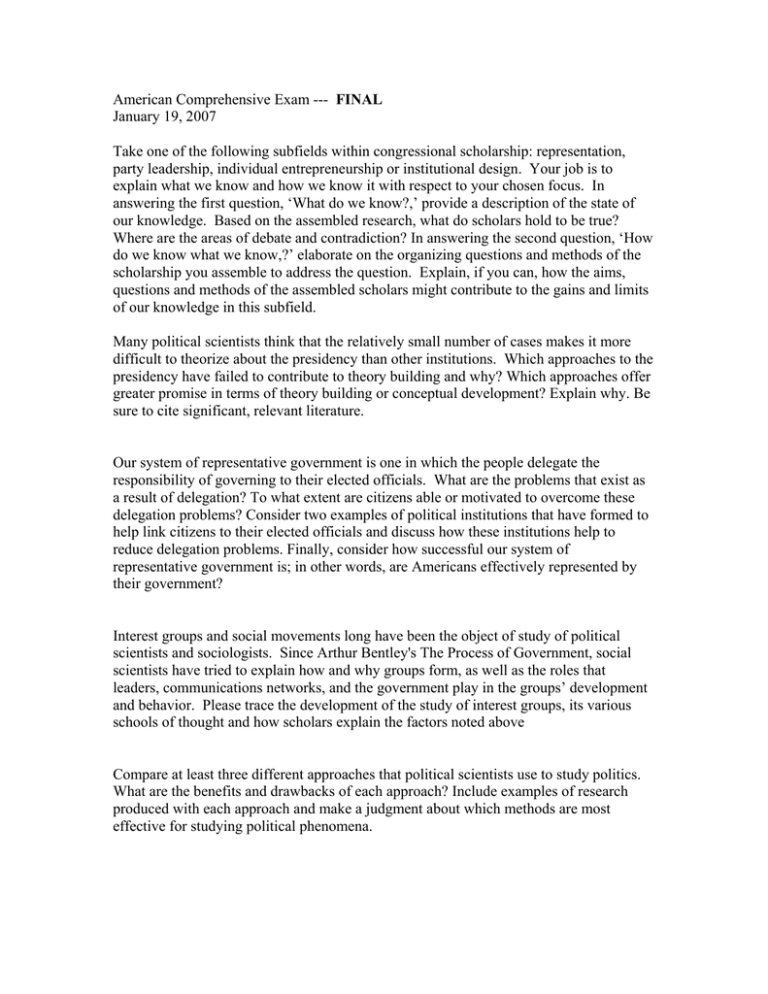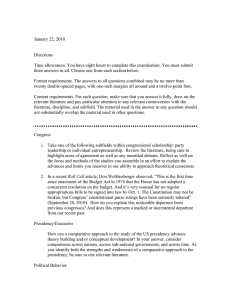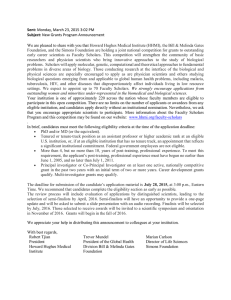FINAL January 19, 2007
advertisement

American Comprehensive Exam --- FINAL January 19, 2007 Take one of the following subfields within congressional scholarship: representation, party leadership, individual entrepreneurship or institutional design. Your job is to explain what we know and how we know it with respect to your chosen focus. In answering the first question, ‘What do we know?,’ provide a description of the state of our knowledge. Based on the assembled research, what do scholars hold to be true? Where are the areas of debate and contradiction? In answering the second question, ‘How do we know what we know,?’ elaborate on the organizing questions and methods of the scholarship you assemble to address the question. Explain, if you can, how the aims, questions and methods of the assembled scholars might contribute to the gains and limits of our knowledge in this subfield. Many political scientists think that the relatively small number of cases makes it more difficult to theorize about the presidency than other institutions. Which approaches to the presidency have failed to contribute to theory building and why? Which approaches offer greater promise in terms of theory building or conceptual development? Explain why. Be sure to cite significant, relevant literature. Our system of representative government is one in which the people delegate the responsibility of governing to their elected officials. What are the problems that exist as a result of delegation? To what extent are citizens able or motivated to overcome these delegation problems? Consider two examples of political institutions that have formed to help link citizens to their elected officials and discuss how these institutions help to reduce delegation problems. Finally, consider how successful our system of representative government is; in other words, are Americans effectively represented by their government? Interest groups and social movements long have been the object of study of political scientists and sociologists. Since Arthur Bentley's The Process of Government, social scientists have tried to explain how and why groups form, as well as the roles that leaders, communications networks, and the government play in the groups’ development and behavior. Please trace the development of the study of interest groups, its various schools of thought and how scholars explain the factors noted above Compare at least three different approaches that political scientists use to study politics. What are the benefits and drawbacks of each approach? Include examples of research produced with each approach and make a judgment about which methods are most effective for studying political phenomena.




